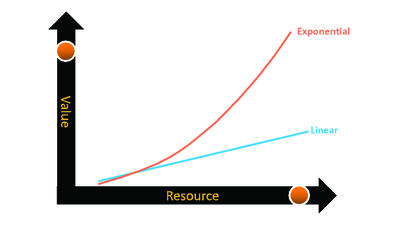
Today, the disruptive technologies of Artificial Intelligence, Blockchain, 3D Printing as well as the pervasive smartphone are having a similar or bigger impact on businesses.
The world is abuzz with how the 4th Industrial Revolution is upon us and the profound impact it has on our lives. We see the many signs of change, disruption and innovation in our daily lives. The underlying factors behind every industrial revolution are twofold-disruptive technologies and business model innovations. The disruptive technology called steam engine had the most profound impact in the First Industrial Revolution. It is good to try and visualise how the power of the steam engine reduced the distances between cities and made transportation of goods so much easier.
This changed business models for companies and countries. Today, the disruptive technologies of Artificial Intelligence, Blockchain, 3D Printing as well as the pervasive smartphone are having a similar or bigger impact on businesses. This is enabling the development of new business models around Platforms, Sharing Economy, and Pay-As-You-Go to name a few.
So while the terminologies have changed, it can be argued that nothing much really has changed. It’s just about how companies stay on top of these disruptive technologies and use them in new ways to deliver value to customers.
It’s All About The Strategy
There is one other fundamental difference between the 4th Industrial Revolution and the previous ones, and that is to do with the financial strategy. Each of the digital success stories that we hear about from Amazon, UBER, Grab, Airbnb and others have all been backed by a financial strategy to make this new future happen.
They were backed by strong private equity money who believe in this new future and were willing to invest billions of dollars in changing consumer habits to grow these blue ocean spaces. UBER and Grab would not have achieved so much success had they not offered incredible price bargains for customers to realise the benefit of their new business models.
While all these companies lose money in the early years, they also stand to make extraordinary profits once their scale increases tenfold. The platform play, global scale and leverage of disruptive technologies enables them to see a non-linear return on investments as the business grows in size. Having a solid financial strategy is thus an important prerequisite for success in this new era.
Asking The Right Questions
As you look at embracing the 4th Industrial Revolution, we should all be asking four questions:
• What is our digital strategy?
How can we leverage the power of the disruptive technologies to develop a new future, to address some of the biggest challenges that our customers are facing?
• How are we innovating our business model? How are we developing new value propositions such as Pay-As-You-Go, developing a platform strategy and a personalisation strategy for customers?
• Is the new strategy yielding a non-linear impact on the business? Are we likely to see an exponential return for the investment in resources over a period of time? If the answer to this question is NO, it means the strategy is still one of the previous era.
• What is the financial strategy and are we ready to back up a digital strategy with a financial one? Are we creating the right incentives for
our clients, our teams and our partners to change their habits to partner with us in making this new future happen?

The fourth question is the one that most existing companies have failed to address in their digital transformation play. They expect the same good returns on the new digital business that they see in their current business in the near team. You have to necessarily emulate the financial strategy of the 4th Revolution companies, else we all will face what is call “Death by a thousand cuts”. More companies are dying from a slow and painful death than by the Kodak Moment.
Manoj Menon was until recently MD and Senior Partner at Frost & Sullivan and a Board member of the Malaysian Industrial Development Authority.


